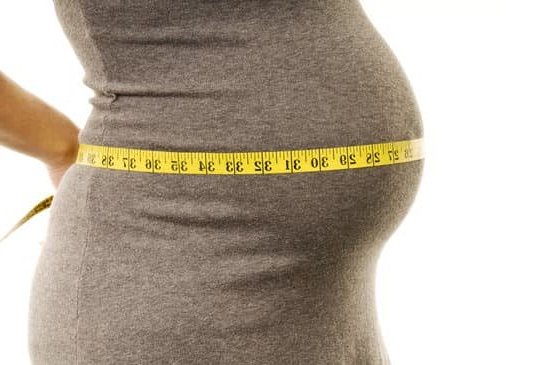A common question that often arises during pregnancy is, “Is salmon safe during pregnancy?” Maintaining a healthy diet is crucial for both the mother and baby’s well-being, especially during this crucial time. Seafood, particularly salmon, can provide numerous benefits due to its rich nutritional profile.
Salmon is known for being a powerhouse of nutrients that are essential for a developing fetus. It is packed with omega-3 fatty acids, protein, and vital vitamins and minerals that are beneficial for both the mother’s health and the baby’s development. These nutrients play a crucial role in supporting brain development, vision, and overall growth in the womb.
However, along with the many benefits of consuming salmon during pregnancy, there are also potential risks to consider. Mercury levels in certain types of fish can be a concern for pregnant women. Additionally, contamination and allergies are factors that need to be taken into consideration when incorporating seafood into your diet during pregnancy. It is important to address these risks and make informed decisions about including salmon in your prenatal diet.
Benefits of Salmon During Pregnancy
During pregnancy, maintaining a healthy diet is essential for the well-being of both the mother and the developing baby. Seafood, including salmon, can be a valuable addition to a pregnancy diet due to its numerous nutritional benefits. Here are some reasons why consuming salmon is considered safe and beneficial during pregnancy:
- Omega-3 Fatty Acids: Salmon is known for being rich in omega-3 fatty acids, specifically docosahexaenoic acid (DHA) and eicosapentaenoic acid (EPA). These fatty acids play a crucial role in fetal brain and eye development. Including salmon in your diet can help ensure that you and your baby are getting an adequate amount of these essential nutrients.
- Protein: Protein is important for overall growth and development during pregnancy. Salmon is a great source of high-quality protein, which is necessary for building and repairing tissues. Additionally, protein can help support the immune system and aid in the production of hormones.
- Essential Vitamins and Minerals: Salmon is packed with essential vitamins and minerals that are beneficial during pregnancy. It contains vitamin D, which helps regulate calcium levels and supports bone health. Additionally, salmon provides nutrients such as B vitamins, potassium, and selenium, which are important for overall health and wellness.
It is important to note that not all seafood is safe during pregnancy due to potential risks such as mercury contamination. However, salmon is considered a low-mercury fish, making it a safer option for pregnant women compared to other types of seafood. The key is to consume salmon in moderation and follow safe consumption guidelines recommended by healthcare providers to reap its many nutritional benefits without any adverse effects on you or your baby.
Risks of Eating Salmon During Pregnancy
During pregnancy, it is important for women to be mindful of the seafood they consume, including salmon. While salmon is generally considered safe and beneficial for pregnant women, there are potential risks that need to be taken into consideration. Here are some key points to keep in mind when it comes to the risks associated with eating salmon during pregnancy:
- Mercury Levels: One of the main concerns when consuming fish during pregnancy is the mercury content. While salmon is low in mercury compared to other types of fish, it is still essential to limit consumption to avoid any potential adverse effects on the developing fetus.
- Contamination: Another risk factor to consider when consuming salmon during pregnancy is contamination. It is crucial to choose wild-caught salmon over farmed salmon, as wild-caught salmon generally contains fewer contaminants such as PCBs or dioxins.
- Allergies: Some individuals may have allergies to seafood, including salmon. If you have a known seafood allergy or experience any allergic reactions after consuming salmon, it is best to avoid it during pregnancy to prevent any complications.
Despite these potential risks, salmon can still be a valuable addition to a pregnant woman’s diet when consumed in moderation and following safe guidelines. By being aware of the risks associated with eating salmon during pregnancy and taking necessary precautions, women can benefit from its nutritional value without jeopardizing their health or the health of their baby.
Consulting with a healthcare provider before including salmon in your diet while pregnant can also provide personalized advice and guidance based on individual circumstances.
Remember that every pregnancy is different, and what works for one woman may not work for another. It is crucial to prioritize your health and well-being during this critical time by making informed decisions about your diet and lifestyle choices. With proper knowledge and guidance, including high-quality sources of Omega-3 fatty acids like salmon can be a safe and nutritious choice for pregnant women.
Safe Consumption Guidelines
Consuming salmon during pregnancy can be a nutritious addition to a woman’s diet. This fish is known for its high levels of omega-3 fatty acids, which are crucial for the baby’s brain development and overall growth.
In addition to omega-3s, salmon is also a great source of protein, vitamin D, and essential minerals like selenium and iodine, all of which are important for both the mother and the developing fetus. However, it is essential to be mindful of how much salmon you consume and how you prepare it to ensure that it is safe during pregnancy.
One key consideration when eating salmon during pregnancy is the potential exposure to mercury. While salmon typically contains low levels of mercury compared to other types of fish, pregnant women should still be cautious about their intake.
The Food and Drug Administration (FDA) recommends that pregnant women consume no more than 8-12 ounces (2-3 servings) of low-mercury fish per week, including salmon. It is crucial to choose wild-caught salmon over farmed salmon whenever possible as wild-caught varieties tend to have lower levels of contaminants.
When it comes to preparing salmon during pregnancy, it is important to ensure that it is cooked thoroughly to kill any harmful bacteria or parasites that might be present. Baking, grilling, or steaming are generally safe cooking methods that can help retain the nutritional value of the fish without adding excess fats or oils.
It is advisable to avoid raw or undercooked fish during pregnancy due to the risk of foodborne illnesses. By following these safe consumption guidelines and being mindful of portion sizes, pregnant women can enjoy the benefits of salmon while minimizing any potential risks associated with its consumption.
| Nutrient | Amount in Salmon |
|---|---|
| Omega-3 Fatty Acids | Approximately 1.1-1.9 grams per 3 oz serving |
| Protein | Around 22-25 grams per 3 oz serving |
| Vitamin D | About 447 IU per 3 oz serving |
Cooking Methods
Baking
Baking salmon is a popular and healthy cooking method that can be enjoyed during pregnancy. By baking salmon, you can ensure that it is cooked thoroughly without losing many of its nutritional benefits. To bake salmon, simply preheat the oven to the desired temperature, season the fish with herbs and spices, and then bake until the fish is opaque and flakes easily with a fork. This method retains the moisture of the salmon while enhancing its flavor.
Grilling
Grilling salmon is another excellent cooking method for pregnant women looking to enjoy this nutritious fish. Grilling adds a nice smoky flavor to the salmon while also keeping it moist. To grill salmon, make sure to oil the grill grates to prevent sticking, then cook the fish over medium-high heat for a few minutes on each side until it is fully cooked. Grilled salmon pairs well with fresh herbs and lemon juice for added taste.
Steaming
Steaming is a gentle cooking method that can help retain the natural flavors and nutrients of salmon during pregnancy. Steamed salmon is moist and tender, making it a great option for expectant mothers who may have sensitive stomachs or find strong flavors unappealing.
To steam salmon, use a steamer basket over simmering water, season it lightly with salt and pepper, then cover and cook until opaque throughout. This simple yet effective cooking method ensures that the salmon remains safe to eat while pregnant.
Overall, these cooking methods not only ensure that the salmon is safe to eat during pregnancy but also allow pregnant women to enjoy this nutrient-rich fish in delicious ways. Make sure to follow safe food handling practices when preparing and consuming seafood during pregnancy to reap its numerous health benefits. Consult your healthcare provider before incorporating salmon into your diet to ensure it aligns with your individual health needs during pregnancy.
Alternatives to Salmon
Eating a variety of seafood can be important during pregnancy to ensure that expecting mothers receive essential nutrients for both their own health and the development of their baby. While salmon is a popular choice due to its rich source of omega-3 fatty acids, protein, and vitamins like Vitamin D and B12, some women may have concerns about consuming it during pregnancy.
For pregnant women looking for alternative seafood options to salmon, there are several nutritious choices available. Trout is another fish that is rich in omega-3 fatty acids and can be a good substitute for salmon. Sardines are also high in omega-3s, calcium, and vitamin D, making them a healthy option for pregnant women concerned about mercury levels. Mackerel is a flavorful fish that provides omega-3s along with vitamin D and selenium.
Incorporating these alternative seafood options into a balanced diet can still offer pregnant women the benefits they would typically get from consuming salmon while addressing any concerns they may have about potential risks associated with specific types of seafood. Consulting with a healthcare provider before making significant changes to dietary habits during pregnancy is always recommended to ensure the safety and well-being of both mother and baby.
| Seafood Option | Nutritional Benefits |
|---|---|
| Trout | Rich in omega-3 fatty acids; good source of protein. |
| Sardines | High in omega-3s, calcium, and vitamin D. |
| Mackerel | Provides omega-3s, vitamin D, and selenium. |
Consultation With a Healthcare Provider
During pregnancy, it is crucial for expectant mothers to maintain a healthy diet to support the growth and development of their baby. Seafood, specifically salmon, is often recommended for its numerous health benefits. However, many women may wonder, “Is salmon safe during pregnancy?” Consulting with a healthcare provider before including salmon in your diet is essential to ensure it is safe for both the mother and the baby.
Why Consultation Is Important
While salmon is rich in omega-3 fatty acids, protein, and essential vitamins and minerals that are beneficial for both the mother and the baby during pregnancy, there are potential risks associated with consuming this fish. Before adding salmon to your diet, it is critical to consult with a healthcare provider who can provide personalized recommendations based on your medical history and dietary needs.
Healthcare Provider’s Guidance
A healthcare provider can offer valuable insight into whether consuming salmon is safe for you during pregnancy. They can assess any potential risks related to mercury levels in seafood or allergies that may affect you or your baby. Additionally, they can provide specific guidelines on how often you should eat salmon and how it should be prepared to minimize any risks while maximizing the nutritional benefits.
Conclusion
In conclusion, it is clear that salmon can be a safe and highly beneficial food choice for pregnant women. The nutritional benefits of consuming salmon during pregnancy, such as omega-3 fatty acids, protein, and essential vitamins and minerals, outweigh the potential risks when consumed in moderation. While there may be concerns about mercury levels, contamination, and allergies associated with salmon consumption, following safe consumption guidelines and preparing it using appropriate cooking methods can help mitigate these risks.
It is essential for pregnant women to consult with their healthcare provider before including salmon in their diet to ensure that it is safe for both the mother and baby. By discussing any potential concerns or health conditions with a healthcare professional, pregnant women can make informed decisions about whether to incorporate salmon into their pregnancy diet.
Additionally, exploring alternative seafood options like trout, sardines, or mackerel can provide variety while still reaping the nutritional benefits of consuming fish during pregnancy.
Overall, salmon can indeed be a safe and nutritious choice for pregnant women when eaten in moderation and prepared properly. With its numerous health benefits and importance in supporting fetal development, including salmon in a well-balanced diet during pregnancy can contribute to a healthy pregnancy journey.
Remember that individual dietary needs may vary, so consulting with a healthcare provider is always recommended to ensure that both mother and baby are receiving the necessary nutrients for a safe and healthy pregnancy.
Frequently Asked Questions
Can You Eat Salmon in Pregnancy?
Yes, you can eat salmon during pregnancy as it is a great source of omega-3 fatty acids, high-quality protein, and important vitamins and minerals like vitamin D and B12. These nutrients are beneficial for both the mother and baby’s health.
Is Salmon High in Mercury Pregnancy?
Salmon is considered low in mercury compared to other types of fish, making it a safe option for pregnant women when consumed in moderation. It is recommended to limit intake to 2-3 servings per week to reduce the risk of mercury exposure while still gaining the nutritional benefits.
What Kind of Salmon Is Good for Pregnancy?
When considering which type of salmon is good for pregnancy, wild-caught salmon is generally preferred over farmed salmon due to its lower risk of containing environmental contaminants. Wild-caught salmon typically has higher levels of omega-3 fatty acids and lower levels of unhealthy fats compared to farmed salmon, making it a healthier choice for expecting mothers.
Additionally, choosing fresh or frozen salmon over smoked or processed varieties can help minimize added sodium and other preservatives that may be less desirable during pregnancy.

Welcome to my fertility blog. This is a space where I will be sharing my experiences as I navigate through the world of fertility treatments, as well as provide information and resources about fertility and pregnancy.





